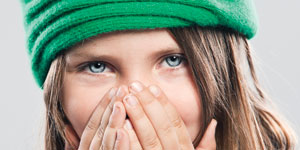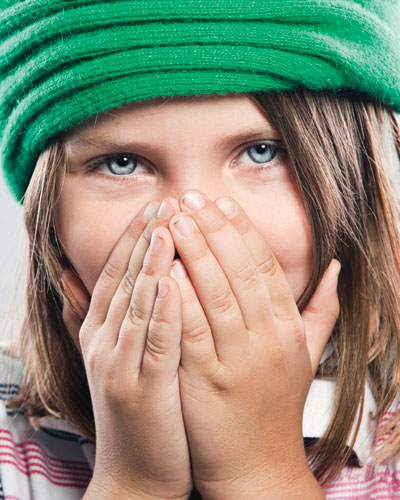Health
3 min Read
Ask the Expert: What causes cold sores?

November 13, 2017
Health
3 min Read

November 13, 2017

 Cold sores are tiny fluid-filled blisters that typically show up on the edge of the lip. In the first infection, other blisters/ulcers may occur inside the mouth on the tongue and gums. Cold sores are common, occurring in 30 to 60 percent of children before the age of 10. In fact, 40 percent of children are born with the virus and lesions may not become visible until much later in life (Alberta Health and Wellness Disease Management Guidelines).
Cold sores are tiny fluid-filled blisters that typically show up on the edge of the lip. In the first infection, other blisters/ulcers may occur inside the mouth on the tongue and gums. Cold sores are common, occurring in 30 to 60 percent of children before the age of 10. In fact, 40 percent of children are born with the virus and lesions may not become visible until much later in life (Alberta Health and Wellness Disease Management Guidelines).
Despite their name, cold sores are not caused by a cold virus, but rather they are caused by the herpes type 1 virus, which spreads mostly through saliva or after contact with someone who has an active cold sore. They can, however, also be spread via hands, utensils, lip balm, face towels, drinking glasses and other items.
For most, cold sores are just a nuisance and they go away on their own within seven to 10 days. After starting like a blister with some fluid inside, they rupture to reveal a red area, then dry up, crust and heal with no scarring. Sometimes they can last longer and be painful especially if they are in the mouth. Treatment for pain is helpful to avoid dehydration.
Applying cold packs or zinc cream can promote healing. Other creams with docosanol (like Abreva) are available over-the-counter, which may shorten the duration of the virus while also protecting others from getting the virus. Occasionally, oral prescription antiviral medications are prescribed to further shorten the outbreak especially if it is more widespread or painful.
There is no cure for cold sores. Once you contract the virus, the virus then remains dormant on the nerve in the area and can recur when triggered by a fever, illness, stress, fatigue, trauma, or even sun and wind exposure. Using sunscreen balms in hot and/or windy environments can be helpful. Older children may describe a ‘tingling’ feeling foreshadowing the arrival of a cold sore. Starting an oral antiviral at this time may divert an outbreak.
If your child has a cold sore, remind them to avoid skin-to-skin contact and not to share personal items that can spread the virus. Remind them to keep their hands clean and to not touch their mouth area with their hands as they can spread it to others via their hands or through objects. Touching or picking at their own cold sore is discouraged as it can cause a secondary infection, which may require additional medications.
Originally published in ParentsCanada magazine, Winter 2017.